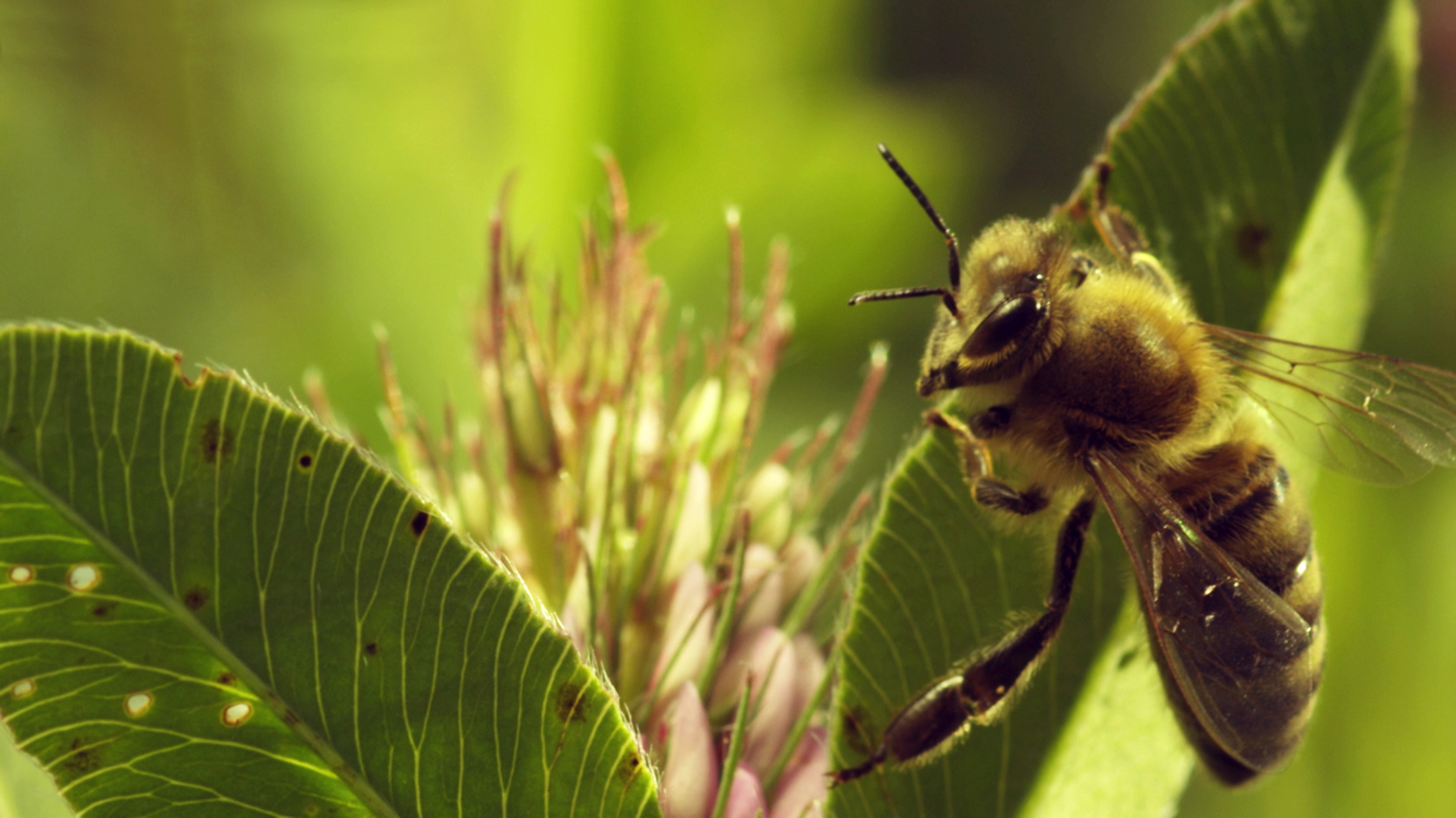More Than Honey
Opens Fri., July 12 at Varsity. Not rated. 96 minutes.
Instead of making the underperforming White House Down, perhaps director Roland Emmerich—the master of disaster behind 2012 and The Day After Tomorrow—should’ve stuck with his usual instinct for large-scale destruction. He should’ve made a movie about bees.
More Than Honey demonstrates why the subject is ripe for apocalyptic treatment. Banish all thoughts of The Swarm, the ’70s Michael Caine flop about killer bees taking over; the real threat is not that bees will attack us, but abandon us. Albert Einstein has been quoted as saying that if bees were to disappear from the Earth, humankind would die off after four years—and while the attribution might be apocryphal, the observation points out how the agricultural grid is dependent on those tiny, buzzing ministers of fertility.
You may have heard about some of this already, since docs Colony and Queen of the Sun have recently played Seattle. Colony collapse disorder (or CCD) is a widespread phenomenon in the world of beekeeping, and the millions of bees that prop up annual harvests are disappearing in vast numbers. More Than Honey is more than information, however. The info’s there if you want it, but mostly it plays like a humming, honey-dripped dream; director Markus Imhoof is besotted with bees, and he makes them the captivating heroes of his movie. In his extreme close-ups of bees, they take on the grandeur they deserve.
The movie ranges around—we visit China to witness the depressing effects of a major bee die-off, for instance. But Imhoof arranges his film around two bee-men half a world apart: Fred Jaggi, a wizened Swiss apiarist whose grandfather established the family’s beekeeping business, and John Miller, a proud U.S. capitalist who deals in bees by the zillions, trucking them around the country to pollinate huge swaths of fruit and nut trees. Jaggi looks like he just popped his wrinkled head out of a cuckoo clock; Miller beams with the confidence of a shark. The contrast between Old World traditionalist and go-go 21st-century tycoon is perhaps a bit overstated, but both men are bewildered by CCD. Imhoof trains his camera on Miller’s reaction as crates of bees are opened after being transported—thousands of dead bees visible on delivery—and the sight dismays even the can-do American.
A lovely movie—but please, let’s get back to The Swarm. If the accidental release of killer bees gave rise to that horror movie, the irony is that aggressive African bees might prove crucial in saving the planet. Imhoof tracks a group of scientists creating hybrid bee colonies and testing them on an island. The place is so remote that the bees can’t escape to dominate the world. But maybe they should.
film@seattleweekly.com







